Heartland Daily News
Aussies Back Down on Blocking ‘X’ Crime Video
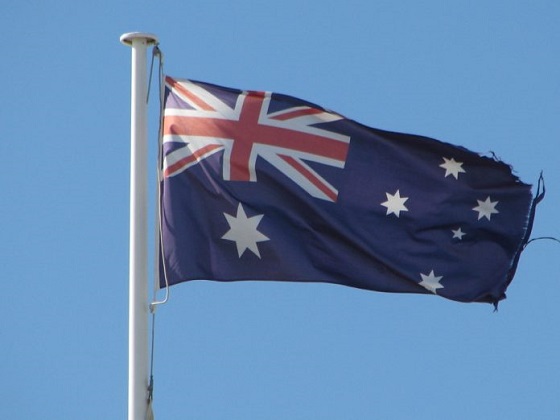
From Heartland Daily News
Aussies back down on blocking ‘X’ video of a crime after realizing they would have to censor the world.
In a welcome development for people who care about liberty, Australia’s government suspended its efforts to censor the planet. The country’s officials suffered pushback from X (formerly Twitter) and condemnation by free speech advocates after attempting to block anybody, anywhere from seeing video of an attack at a Sydney church. At least for the moment, they’ve conceded defeat based, in part, on recognition that X is protected by American law, making censorship efforts unenforceable.
A Censor Throws In the Towel
“I have decided to discontinue the proceedings in the Federal Court against X Corp in relation to the matter of extreme violent material depicting the real-life graphic stabbing of a religious leader at Wakeley in Sydney on 15 April 2024,” the office of Australia’s eSafety Commissioner, Julie Inman Grant, announced last week. “We now welcome the opportunity for a thorough and independent merits review of my decision to issue a removal notice to X Corp by the Administrative Appeals Tribunal.”
The free speech battle stems from the stabbing in April of Bishop Mar Mari Emmanuel and Father Isaac Royel at an Orthodox Christian Church by a 16-year-old in what is being treated as an Islamist terrorist incident. Both victims recovered, but Australian officials quickly sought to scrub graphic video footage of the incident from the internet. Most social media platforms complied, including X, which geoblocked access to video of the attack from Australia pending an appeal of the order.
But Australian officials fretted that their countrymen might use virtual private networks (VPNs) to evade the blocks. The only solution, they insisted, was to suppress access to the video for the whole world. X understandably pushed back out of fear of the precedent that would set for the globe’s control freaks.
Global Content Battle
“Our concern is that if ANY country is allowed to censor content for ALL countries, which is what the Australian ‘eSafety Commissar’ is demanding, then what is to stop any country from controlling the entire Internet?” responded X owner Elon Musk.
The Electronic Frontier Foundation (EFF) also argued that “no single country should be able to restrict speech across the entire internet” as did the Foundation for Individual Rights and Expression (FIRE). The organizations jointly sought, and received, intervener status in the case based on “the capacity for many global internet users to be substantially affected.”
In short, officials lost control over a tussle they tried to portray as a righteous battle by servants of the people against, in the words of Prime Minister Anthony Albanese, “arrogant billionaire” Elon Musk. Instead, civil libertarians correctly saw it as a battle for free speech against grasping politicians who aren’t content to misgovern their own country but reach for control over people outside their borders.
Worse for them, one of their own judges agreed.
“The removal notice would govern (and subject to punitive consequences under Australian law) the activities of a foreign corporation in the United States (where X Corp’s corporate decision-making occurs) and every country where its servers are located; and it would likewise govern the relationships between that corporation and its users everywhere in the world,” noted Justice Geoffrey Kennett in May as he considered the eSafety commissioner’s application to extend an injunction against access to the stabbing video. “The Commissioner, exercising her power under s 109, would be deciding what users of social media services throughout the world were allowed to see on those services.”
He added, “most likely, the notice would be ignored or disparaged in other countries.”
American Speech Protections Shield the World
This is where the U.S. First Amendment and America’s strong protections for free speech come into play to thwart Australian officials’ efforts to censor the world.
“There is uncontroversial expert evidence that a court in the US (where X Corp is based) would be highly unlikely to enforce a final injunction of the kind sought by the Commissioner,” added Kennett. “Courts rightly hesitate to make orders that cannot be enforced, as it has the potential to bring the administration of justice into disrepute.”
Rather than have his government exposed as impotently overreaching to impose its will beyond its borders, Kennett refused to extend the injunction.
Three weeks later, with free speech groups joining the case to argue against eSafety’s censorious ambitions, the agency dropped its legal case pending review by the Administrative Appeals Tribunal.
“We are pleased that the Commissioner saw the error in her efforts and dropped the action,” responded David Greene and Hudson Hongo for EFF. “Global takedown orders threaten freedom of expression around the world, create conflicting legal obligations, and lead to the lowest common denominator of internet content being available around the world, allowing the least tolerant legal system to determine what we all are able to read and distribute online.”
But if the world escaped the grasp of Australia’s censors, the country’s residents may not be so lucky.
Domestic Censorship Politics
The fight between eSafety and X “isn’t actually about the Wakeley church stabbing attacks in April — it’s about how much power the government ultimately hands the commissioner once it’s finished reviewing the Online Safety Act in October,” Ange Lavoipierre wrote for the Australian Broadcasting Corporation.
“The video in dispute in the case against X has been used, in my opinion, as a vehicle for the federal government to push for powers to compel social media companies to enforce rules of misinformation and disinformation on their platforms,” agrees Morgan Begg of the free-market Institute of Public Affairs, which opposes intrusive government efforts to regulate online content. “The Federal Court’s decision highlights the government’s fixation with censorship.”
That is, the campaign to force X to suppress video of one crime is largely about domestic political maneuvering for power. But it comes as governments around the world—especially that of the European Union—become increasingly aggressive with their plans to control online speech.
If the battle between Australia’s eSafety commissioner and X is any indication, the strongest barrier to international censorship lies in countries—the U.S. in particular—that vigorously protect free speech. From such safe havens, authoritarian officials and their grasping content controls can properly be “ignored or disparaged.”
Originally published by the Reason Foundation. Republished with permission.
Health
AGs Question Pediatricians Pushing Trans Treatment
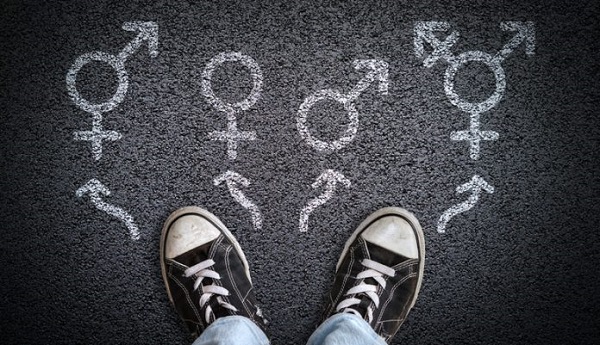
From Heartland Daily News
In encouraging the use of puberty blockers, cross-sex hormones, and surgical interventions, the AAP claims the treatments are reversible. The AG letter says that is “misleading and deceptive.”
“It is beyond medical debate that puberty blockers are not fully reversible, but instead come with serious long-term consequences,”
Attorney generals from 20 states and legislators from Arizona signed an interrogatory letter to the president of the American Academy of Pediatrics (AAP) about the group’s support of puberty blockers, cross-sex hormones, and surgery for children and adolescents who have been diagnosed with gender dysphoria.
“Often the AAP has exercised its influence responsibly,” states the letter. “… But when it comes to treating children diagnosed with gender dysphoria, the AAP has abandoned its commitment to sound medical judgment.”
The AG letter demanded responses to multiple questions about its child gender policies by October 8, and it stated AAP’s conduct is being reviewed further.
Idaho Attorney General Raul R. Labrador sent the letter, and AGs from Alabama, Arkansas, Florida, Georgia, Iowa, Kansas, Louisiana, Mississippi, Missouri, Montana, Nebraska, North Dakota, Ohio, South Carolina, South Dakota, Texas, Utah, Virginia, and West Virginia signed it, as did the president of the Arizona State Senate and the speaker of the Arizona House.
Sounding an Alarm
The American College of Pediatricians (ACPeds), an alternative medical professional organization, has spent years sounding the alarm on AAP-approved transgender treatments.
ACPeds organized a coalition of health care professionals to create the Doctors Protecting Children Declaration, a document urging organizations to stop promoting what ACPeds calls unethical, harmful practices in treating children with gender dysphoria. Some 82,500 professionals and concerned citizens have signed the declaration.
“We have personally reached out to the AAP leadership and leaders of the other named organizations, asking them to put a stop to this, and have not received a response,” said ACPeds Executive Director Jill Simons, M.D.
“Unfortunately, the leadership of the AAP and other organizations have silenced their very members from engaging in medical discourse when they have put in question these harmful protocols, and they continue to double down on them even as they stand without evidence-based research to support their current positions,” said Simons.
Questioning What’s ‘Reversible’
In encouraging the use of puberty blockers, cross-sex hormones, and surgical interventions, the AAP claims the treatments are reversible. The AG letter says that is “misleading and deceptive.”
“It is beyond medical debate that puberty blockers are not fully reversible, but instead come with serious long-term consequences,” the letter states.
The letter cites the widely recognized Cass Review commissioned by Britain’s National Health Service and published in April.
“The Cass Review was monumental in demonstrating, through the most thorough review of the research and current protocols and outcomes in England, that the current protocols of social affirmation, puberty blockers, and cross-sex hormones do not improve the health outcomes of children with gender dysphoria and in fact there is evidence of causing harm,” said Simons.
“Dr. Hilary Cass’s recommendation has shut down the practice of transitioning kids in England,” said Simons. “Many other European countries are also reversing course and returning to proven medical care, which is supportive mental health and addressing underlying diagnoses.”
Leaked files from the World Professional Association of Transgender Health (WPATH) and a recent statement from the American Society of Plastics Surgeons have bolstered the case against surgical and hormonal trans treatments, says Simons.
APA, AMA Uninterested
A growing number of people are recognizing the validity of the studies, says Dr. Tim Millea, chair of the Health Care Policy Committee and Conscience Rights Protection Task Force of the Catholic Medical Association (CMA).
“Physician organizations such as AAP and [American Medical Association] appear to be uninterested in those studies, at the expense of ongoing harm to Americans that they encourage to enter the ‘gender-industrial’ medical system,” said Millea. “It seems to be true that the leadership of these groups prioritize ideology over science, which is a dereliction of duty in the vocation of medicine.”
Doctors Afraid to Speak Out
Most U.S. pediatricians are members of the AAP. Dissent within the organization has led to the development of alternative professional organizations such as ACPeds. The AAP is too radical for most pediatricians, though they are reluctant to say so, says Simons.
“I speak to countless pediatricians who are members of the AAP who disagree with the AAP’s policies and fully support our efforts to put a stop to these unethical protocols, but they are truly fearful of losing their jobs and the harms that will come to them if they speak out,” said Simons. “I unfortunately speak to pediatricians who have been reprimanded and even fired for speaking out.”
Going to Court
The AAP has been named in multiple lawsuits against doctors and hospitals. Members of ACPeds have served as expert witnesses and submitted amicus briefs to fight the AAP’s gender treatment protocols.
ACPeds also filed a lawsuit against the Biden-Harris administration for its rule requiring doctors to perform gender transition procedures on minors against their medical judgment.
“The American College of Pediatricians is filing this lawsuit against HHS because doctors should never be forced to violate their sound medical judgment and perform life-altering and sterilizing interventions on their patients,” stated ACPeds news release. “Our doctors take an oath to do no harm, but the Biden administration’s rule forces them to violate this oath and perform procedures that are harmful and dangerous to our patients– vulnerable children. What the Biden Administration is calling for is wrong and unlawful.”
Over the past several years, the CMA has been involved in gender intervention cases around the country and plans to file an amicus brief for the Supreme Court case United States v. Skrmetti, scheduled to be heard during the current session.
Changing the Culture
CMA hosted a two-hour panel discussion on September 8, 2024, in which several de-transitioners recounted the harms they suffered from gender transition procedures as minors. The organization wants to make sex-change procedures among children, teens, and young adults unthinkable, says Millea.
“There are three areas of emphasis to accomplish that goal, and two of them are judicial and legislative,” said Millea. “The third is of greatest importance, and that is cultural. The public needs to learn and understand the negative and lifelong risks and complications of gender transition.
“We remain hopeful that doctors will push back against these protocols and follow their oath to do no harm,” said Simons. “There will be a tipping point when doctors are no longer fearful and will speak out.”
Ashley Bateman ([email protected]) writes from Virginia.
Censorship Industrial Complex
‘Silicon Curtain’ Is Protecting Government Censorship
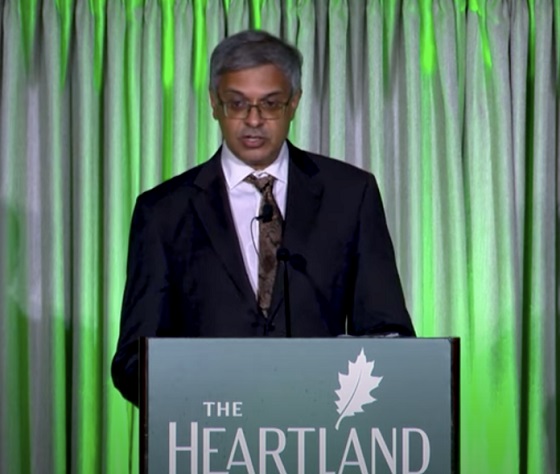
From Heartland Daily News
By AnneMarie Schieber
Citing Winston Churchill’s “Iron Curtain” metaphor describing the Cold War division of Europe, health care policy expert Dr. Jay Bhattacharya told an audience, “We are now in the middle of a Silicon Curtain of censorship descending across the previously free West.”
In a keynote address at The Heartland Institute’s Benefit Dinner in Chicago on September 13, Bhattacharya said public health is the new “fig leaf” for justifying government censorship.
“Free speech is in dire danger in the U.S.,” said Bhattacharya. “The government will use its power to suppress criticism [of] its own misinformation.”
Bhattacharya is a plaintiff in Murthy v. Missouri, in which the Supreme Court lifted a preliminary injunction directing the Biden administration not to “coerce or significantly encourage social-media companies to suppress protected speech” and remanded the case to a lower court.
“This gives a way to the government to censor at will,” said Bhattacharya. “All they have to do is send emails and algorithms to social media companies without naming a single person—just name ideas not allowed to be said online.
“The First Amendment, in effect, is an unenforceable dead letter,” said Bhattacharya.
Under Fire for Opinions
Bhattacharya, a medical doctor and professor of medicine, economics, and health care research policy at Stanford University, rose to prominence when he published The Great Barrington Declaration (GBD) on October 4, 2020, with epidemiologists Martin Kulldorff and Sunetra Gupta. The declaration criticized COVID lockdowns and urged authorities to focus on keeping children in school and protecting the elderly instead of imposing broad-based restrictions.
Although the writers were highly recognized for their work and associated with Stanford, Harvard, and Oxford Universities, respectively, powerful government figures denounced them. Francis Collins, then director of the National Institutes of Health, and Anthony Fauci, then director of the National Institute of Allergy and Infectious Diseases, called the trio “fringe epidemiologists” in emails that were made public later.
Ostracized and Blacklisted
Bhattacharya was ostracized by other professors at Stanford and was blacklisted on Twitter. When Elon Musk purchased the social media giant, he discovered the list and shared it with Bhattacharya.
Google “de-boosted” the GBD, which was posted online and signed by more than 940,000 doctors, researchers, and concerned citizens. Facebook banned posting of it altogether.
Using internal government emails they obtained, the plaintiffs showed the government was controlling social media companies by threatening to regulate them out of business if they didn’t abide by the Biden administration’s censorship demands.
The White House also used universities to help with the censorship work, which the government is prohibited from doing directly. Bhattacharya brought up the case of the Stanford Internet Observatory, which received government grants to develop algorithms to target a particular idea. The government shared that information with social media platforms.
Rising Worldwide
Europe, Canada, the U.K., and Australia have led the way on legislation to control speech, Bhattacharya told the audience. The bills and laws ostensibly outlaw violence, pornography, and hate on the internet, carry Orwellian names, and establish authorities to do the enforcement.
These include the Digital Services Act in the E.U., the Online Harms Act in Canada, and the Online Safety Act of 2023 in the U.K. A bill in France establishes a digital “safety” commission for the same purpose.
“It is dangerous to let governments have control over the definition of hate,” said Bhattacharya. “It’s even more dangerous to allow government to determine what is misinformation because science and medicine depend on free speech to operate properly.”
Censoring Political Opponents
Scott Jensen, a medical doctor and Minnesota state senator who ran against Tim Walz for governor in 2022, says his respect for Bhattacharya is immense. Jensen was a prominent critic of COVID-19 policies, and Facebook censored his election page. Jensen lost the race, and Walz went on to implement some of the most draconian COVID-19 restrictions and is Vice President Kamala Harris’s running mate in this year’s election for president.
“Dr. Bhattacharya’s willingness to present and stand by a contrarian narrative—which ultimately proved to be profoundly wise—will go down in history as an act of immense courage in the face of smothering government censorship fueled by behemoth, profit-driven technological companies,” said Jensen.
“American’s First Amendment rights are under attack by a political elite, but Dr. Jay Bhattacharya continues to stand in the breach and do whatever is necessary to protect and defend free speech,” said Jensen.
AnneMarie Schieber ([email protected]) is the managing editor of Health Care News.
-
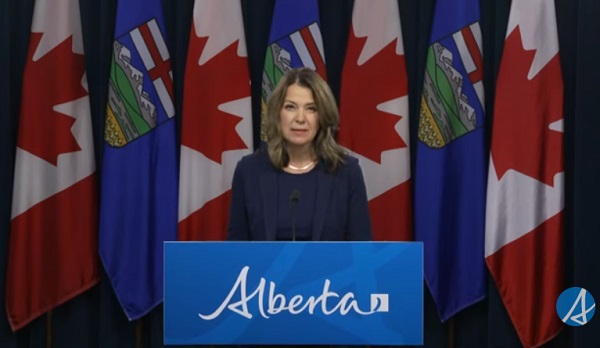
 Alberta2 days ago
Alberta2 days agoPremier Smith moves to protect Alberta in International Agreements
-

 Health2 days ago
Health2 days agoFor Anyone Planning on Getting or Mandating Others to Get an Influenza Vaccine (Flu Shot)
-

 Business2 days ago
Business2 days agoA Middle Finger to Carney’s Elbows Up
-
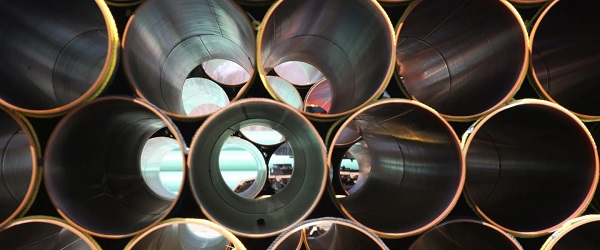
 Energy1 day ago
Energy1 day agoB.C. premier’s pipeline protestations based in fallacy not fact
-
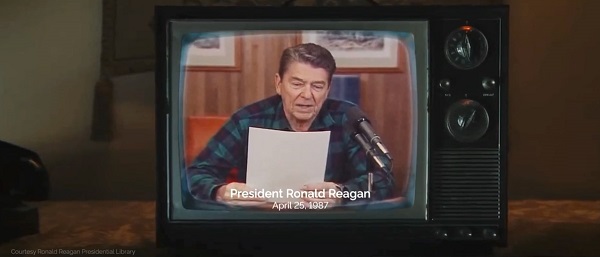
 Business1 day ago
Business1 day ago‘TERMINATED’: Trump Ends Trade Talks With Canada Over Premier Ford’s Ronald Reagan Ad Against Tariffs
-

 Uncategorized18 hours ago
Uncategorized18 hours agoTrump Admin Establishing Council To Make Buildings Beautiful Again
-

 DEI2 days ago
DEI2 days agoConservative push to end Canada’s ‘anti-merit’ DEI programs receives support
-

 Business2 days ago
Business2 days agoLiberals backtrack on bill banning large cash gifts, allowing police to search Canadians’ mail










